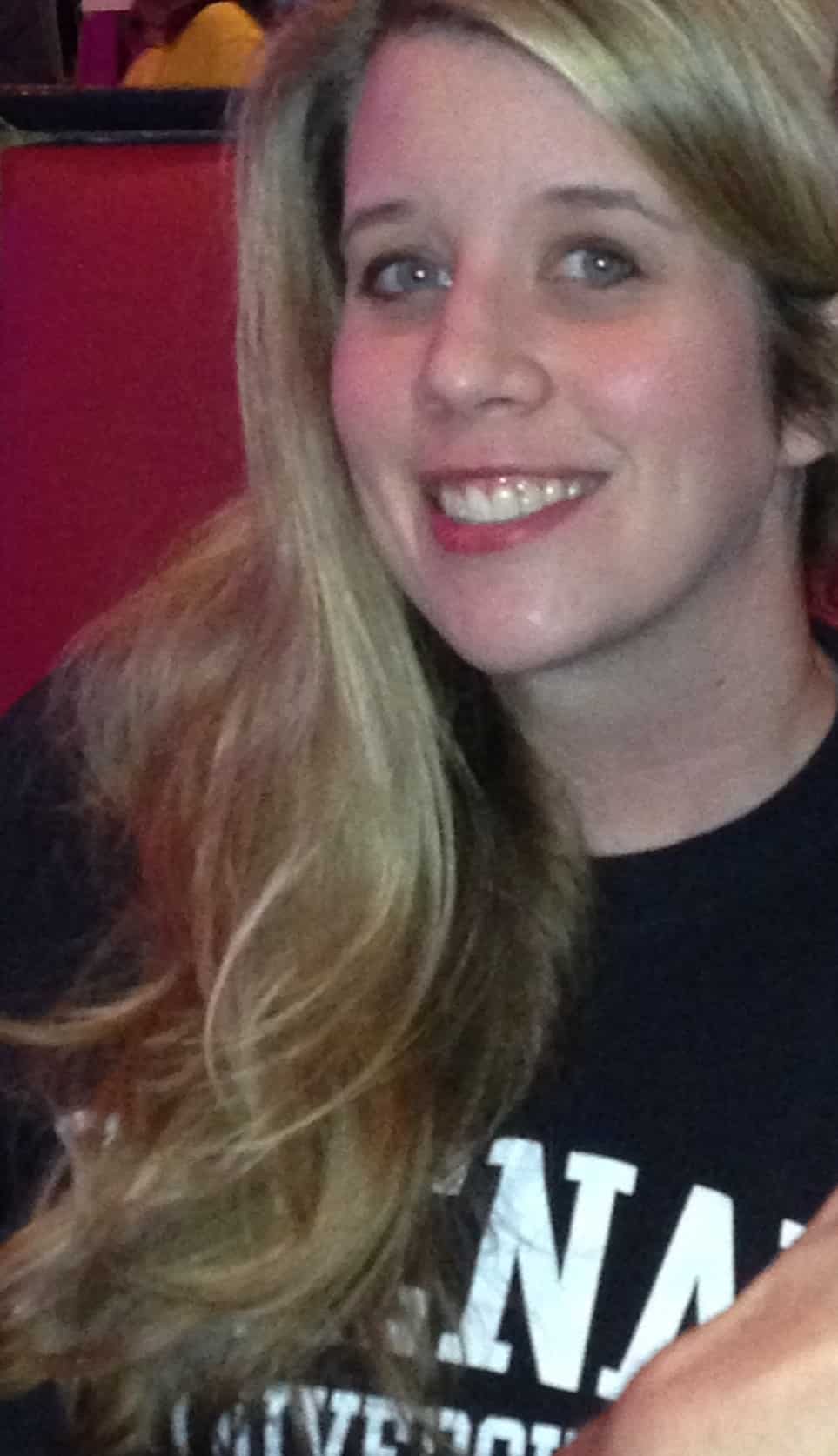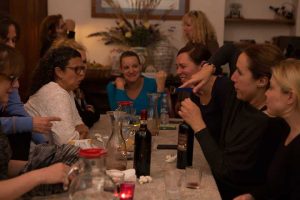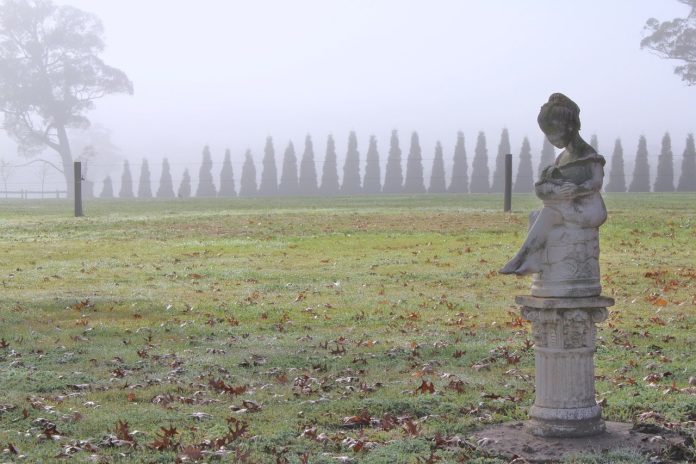By Eve Phillips
“I’m not sure we should date, but regardless, I want to be friends. Honestly though, I miss you when we don’t talk,” he rambles uncomfortably, after I press him to consider what he really wants.
I’m 32; I’m a widow who is dating again. As a result, I frequently want to escape the agony of another awkward dinner with a man who has yet to understand that when you meet the right person, “You know.”
There is no Well, maybe… or Perhaps if something better doesn’t come along… You just know, and you see your future life unfolding with that person supporting you.
In this conversation, I desperately want to unleash that honesty to an unfiltered degree by saying, “Please just go fuck yourself. You have no concept of missing a person. I know because I own that feeling.”
However, he is a good man, and we have both been hypnotized by the political correctness that permeates white-collar professions. So, my contributions to the conversation are punctuated by “I understand.” and “I know where you’re coming from.”
I avoid conflict in the feminine fashion, and internalize resentment. As kind as this man is, the bottom line is that he is 45, and his family members are all alive and well. I’m 13 years his junior and feel lost in a world of missing those who have left me behind.
I once believed that my emotions would develop their own olfactory system and become immune to the feelings of longing and loss. Missing was my birthright—growing up as a child longing for a mother who died of cancer in her thirties.
In fact, I owned tragedy—losing my husband in a pointless war eighteen months after our marriage.
As I approached my thirties, I felt immune to pain or suffering. I could approach experiences with a numbness guarding me, and I felt invulnerable to the power of any future hurts or devastations.
This false sense of emotional invincibility left me grossly unprepared to cope with my father’s death.
I was my father’s daughter, and he was my best friend. Our relationship evolved strongly partly because southern girls bond with their fathers in a culturally exclusive way. As a southern man, there is scarcely a greater pride than raising an independent daughter. A woman who can care for herself and refuses to settle for a man who is less than worthy makes a father feel secure. He knows his daughter will never be at the mercy of anyone because she has herself, and she is bolstered by his wisdom and guidance.
I was also his daughter because there was an eight-year span that separated my mother’s death and his remarriage. My stepmother did the best that she could with the raw materials she was given, but I was already ruined by the time she came into our lives.
The memories of my father are colored by the bright blue 78’ Chevy pickup he drove all the years of my life. I see myself in that truck, riding to softball practice in early September with the vinyl seats sticking to the backs of my legs. Stopping by the corner store for a Coke and a Nestle Alpine bar… He let me weave the leather roping into a new steering wheel when I was six or seven. Twenty-five years later, and it still looks terrible, the sloppy work of a small child, but by uncle, who drives it now, doesn’t seem to notice.
Much of my father’s self-worth stemmed from caring for others and being a steady source of reliable comfort in a world that is fraught with half-truths and supports of convenience. So, when he was diagnosed with two types of cancer at age 64, our worlds shifted so rapidly and dramatically that I felt I no longer understood my life any longer.
My father abruptly lost his independence and ability to fulfill the role of caretaker—the core of his identity. I dared not tell my parents that while the colon cancer was likely curable, the multiple myeloma—a rare form a bone cancer—had an abysmally low survival rate, preceded by months or years of pain and degenerative health.
Looking back, I think he felt robbed of his dignity. I know he feared the forced dependence of cancer patients—he watched my mother experience that firsthand. And he was a person who lived life on his own terms—a stubborn independence that drove me mad and made me want to be just like him at the same time.
Now, it seems natural that on a perfect spring day, when he was reasonably recovered from yet another radiation treatment, he decided to take a drive through the North Georgia mountains in that Chevy. He stopped in a secluded spot along the curves of Highway 53 and took his life with a revolver no one knew he owned.
When my aunt and uncle pulled into my driveway unannounced, I was hauling and spreading bales of pinestraw along the back embankment, caring for my home with the work ethic he gave me. Afterwards, I remember standing in the shower, watching the debris from the bales circle from the drain as I prepared myself to face the remainder of my life without my father’s guidance.
People use the term “grief” in such a singular way. As if the concept is static and exists in black and white terms. My father’s death has taught me that, instead, grief exists in degrees, like burns. Some leaving a stinging pain for a few days, others ripping past the nerve beds, leaving you with so much agony that you no longer understand how to feel the hurt.
Grieving my husband was “easy.” While we loved one another intensely, he was a paratrooper in the one of the most violent places on Earth. I was prepared and shouldered the grief gracefully. He also died honorably, defending our country, so he is celebrated as a hero. When he died, people welcomed and encouraged my grief. They supported me through the struggle as I reassembled my life. Many wanted me to grieve more and laud the role of the young and helpless widow. Instead, I went to graduate school and worked through the hurt.
My father took his own life—a social taboo—especially in the conservative South. In many ways, he was the better man, the better person, also a veteran, with the heart of a servant and decades of a life well-lived. I shouldered that grief mostly alone and returned to work after the funeral amongst hushed whispers.
Internally furious with those too weak or insecure to broach a death they could not understand, I retreated and found support in those friends who were accepting of the unspeakable. The reactions to my father’s suicide taught me discern between those who glory in dramatics of accepted grief and those who are willing to love and push me through an unpopular hurt with their voices of reason and honesty.
And the art of missing those I have lost and cultivating that art through a life fully lived makes all the sacrifices of those whom I long for worth what they invested in me as a person.

Eve Phillips holds a BA in English from Brenau University and an MAT in English from Piedmont College. She has taught high school English for seven years before transitioning into the field of instructional technology. She currently lives in the North Georgia mountains with my redbone coonhound, Hattie, and two cats, Milton and Rufus.



Get ready to connect to your joy, manifest the life of your dreams, and tell the truth about who you are. This program is an excavation of the self, a deep and fun journey into questions such as: If I wasn’t afraid, what would I do? Who would I be if no one told me who I was?
Jennifer Pastiloff, creator of Manifestation Yoga and author of the forthcoming Girl Power: You Are Enough, invites you beyond your comfort zone to explore what it means to be creative, human, and free—through writing, asana, and maybe a dance party or two! Jennifer’s focus is less on yoga postures and more on diving into life in all its unpredictable, messy beauty.
Note Bring a journal, an open heart, and a sense of humor. Click the photo to sign up.
